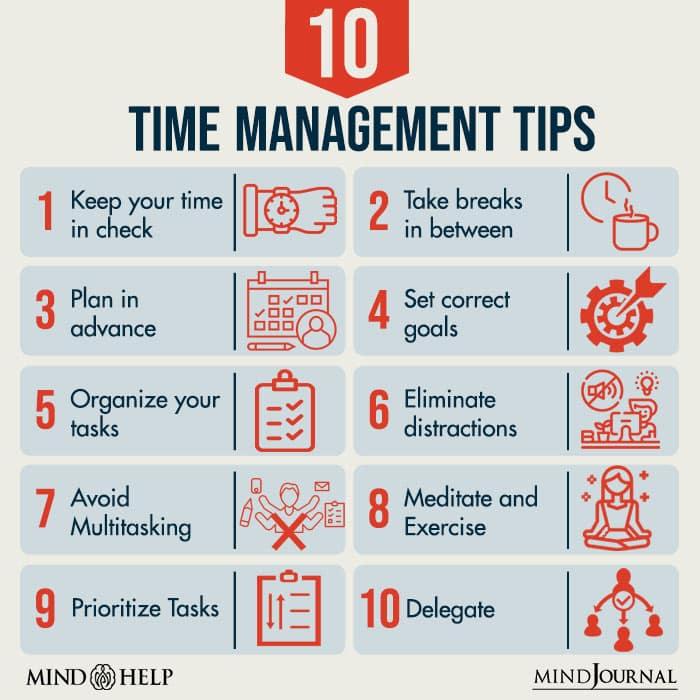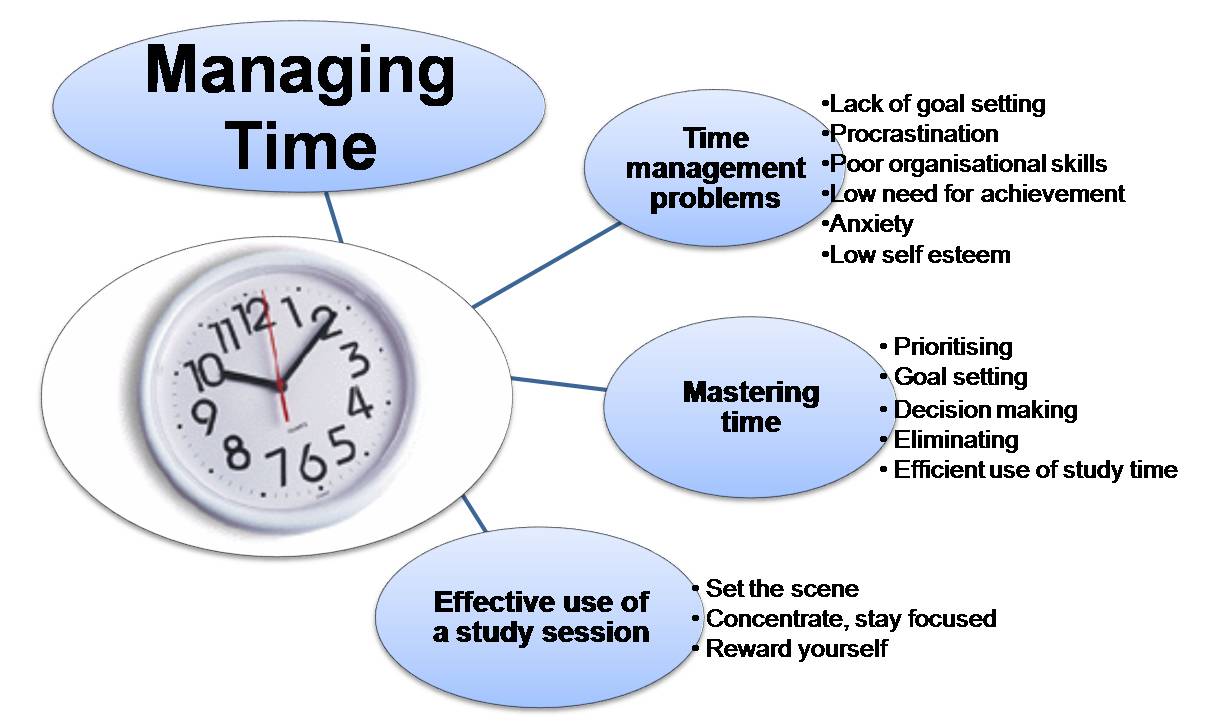
Strategies for Managing Your Time Efficiently

Mastering the Clock: Strategies for Managing Your Time Efficiently
Time is a precious commodity, slipping through our fingers like grains of sand. In today's fast-paced world, it feels like there are never enough hours in the day to accomplish everything. Yet, amidst the chaos, there's a glimmer of hope: efficient time management. This isn't about squeezing every last minute out of your day but about maximizing your productivity and achieving your goals with less stress.
Understanding the Enemy: Identifying Time Wasters
The first step to managing your time effectively is recognizing the culprits that steal it away. Common time-wasters include:
- Procrastination: Putting off tasks until the last minute leads to rushed work and unnecessary stress.
- Multitasking: While it seems like a productivity booster, multitasking often leads to reduced focus and errors.
- Distractions: Social media, emails, and constant notifications can derail your concentration.
- Lack of Planning: Failing to prioritize and schedule tasks results in disorganization and wasted effort.
- Perfectionism: Striving for absolute perfection can lead to analysis paralysis and prevent you from completing tasks.
Harnessing the Power of Planning:
Once you've identified your time-wasting habits, it's time to implement a strategic plan. This involves:
- Setting Goals: Define your short-term and long-term objectives to provide direction and purpose to your efforts.
- Prioritizing Tasks: Categorize tasks by importance and urgency using methods like the Eisenhower Matrix.
- Creating Schedules: Block out time for specific tasks and stick to your schedule as much as possible.
- Time Blocking: Allocate dedicated blocks of time for focused work on specific projects.
- Using Tools: Utilize digital calendars, to-do list apps, and time-tracking software to streamline your workflow.
Techniques for Maximizing Productivity:
- Pomodoro Technique: Work in 25-minute focused intervals, interspersed with short breaks, to maintain concentration.
- Timeboxing: Allocate fixed amounts of time for specific tasks to ensure they get completed.
- Batching Similar Tasks: Group similar activities together to optimize flow and avoid mental switching costs.
- Delegating Responsibilities: Distribute tasks to others when appropriate to free up your own time.
- Avoiding Multitasking: Focus on one task at a time to enhance quality and efficiency.
Creating a Work Environment Conducive to Focus:
- Minimize Distractions: Turn off notifications, designate a dedicated workspace, and communicate your need for uninterrupted time.
- Optimize Your Workspace: Ensure your workspace is clean, organized, and equipped with the tools you need.
- Prioritize Breaks: Regularly step away from your work to refresh your mind and maintain focus.
- Practice Mindfulness: Engage in meditation or deep breathing exercises to reduce stress and enhance concentration.
The Importance of Flexibility and Adaptability:
While planning is crucial, it's essential to be flexible and adapt to unexpected changes. Be prepared to adjust your schedule, prioritize tasks, and re-evaluate your approach as needed.
Time Management: A Lifelong Journey:
Effective time management is an ongoing process that requires constant vigilance, experimentation, and refinement. It's about understanding your own habits, identifying your strengths and weaknesses, and developing strategies that work best for you. By incorporating these principles into your daily life, you can reclaim control over your time, achieve your goals, and enjoy a more fulfilling and productive life.

Here’s more about the topic discussed above:
Mastering the Clock: Strategies for Managing Your Time Efficiently
In today's fast-paced world, time is a precious commodity. We're constantly bombarded with demands, deadlines, and distractions, leaving us feeling overwhelmed and struggling to keep up. But fear not, time management is a skill that can be learned and honed, enabling you to reclaim control of your schedule and maximize your productivity.
Understanding the Enemy: Identifying Time Wasters
Before we delve into strategies, it's crucial to understand what drains your time. Take a moment to analyze your daily routine and pinpoint the biggest culprits. Are you:
- Procrastinating: Delaying tasks, often due to fear, lack of motivation, or poor planning.
- Multitasking: Attempting to juggle multiple tasks simultaneously, resulting in lower quality work and increased stress.
- Overcommitting: Agreeing to take on more than you can handle, leading to burnout and missed deadlines.
- Distracted by technology: Constantly checking emails, browsing social media, or getting lost in the rabbit hole of online entertainment.
- Lacking clear goals: Working without a clear sense of purpose or direction, leading to inefficient effort and frustration.
Once you've identified your time-wasting habits, you can start building strategies to overcome them.
Strategies for Reclaiming Your Time:
1. Setting Clear Goals and Prioritizing Tasks:
- Define your goals: What do you want to achieve in the short and long term? Break down your goals into smaller, actionable steps.
- Use the Eisenhower Matrix: Categorize your tasks into four quadrants based on urgency and importance. Focus on important and urgent tasks first.
- Implement the Pareto Principle (80/20 Rule): Identify the 20% of tasks that yield 80% of your results and prioritize them.
2. Time Blocking and Scheduling:
- Block out time for specific tasks: Schedule specific time slots for work, errands, appointments, and even leisure activities.
- Use a calendar: Keep track of your commitments and deadlines. Digital calendars offer reminders and syncing across devices.
- Plan for downtime: Schedule breaks throughout the day to recharge and avoid burnout.
3. Eliminating Distractions:
- Turn off notifications: Silence or disable non-essential notifications on your phone and computer.
- Use a website blocker: Restrict access to distracting websites during work hours.
- Create a dedicated workspace: Designate a specific area for work where you can focus without interruptions.
4. Leveraging Technology:
- Utilize task management apps: Apps like Asana, Trello, and Todoist allow you to organize tasks, set deadlines, and track progress.
- Embrace automation: Automate repetitive tasks whenever possible. Use software for scheduling emails, sending reminders, or managing data.
- Explore time tracking tools: Track your time spent on various tasks to identify areas for improvement.
5. Developing Effective Habits:
- Practice the Pomodoro Technique: Work in focused bursts of 25 minutes, followed by short breaks.
- Minimize multitasking: Focus on completing one task at a time for better quality and efficiency.
- Learn to say no: Don't be afraid to politely decline requests that will overload your schedule.
- Delegate tasks: If possible, delegate tasks to others to free up your time.
6. Taking Care of Yourself:
- Get enough sleep: Prioritize sleep to ensure optimal energy levels and focus.
- Exercise regularly: Physical activity boosts your mood and improves your ability to concentrate.
- Eat a healthy diet: Fuel your body with nutritious foods for sustained energy throughout the day.
7. Regularly Evaluate and Adapt:
- Review your progress: Assess your time management strategies and adjust them as needed.
- Experiment with different techniques: Find what works best for you and experiment with various strategies to improve your efficiency.
- Stay flexible: Life is unpredictable, so be prepared to adapt your schedule and priorities as circumstances change.
Mastering the Art of Time Management:
Time management is a lifelong journey of learning and improvement. It's not about squeezing every minute out of the day but about achieving balance and optimizing your productivity. By implementing these strategies, you can gain control of your time, reduce stress, and unlock your full potential. Remember, the most valuable resource you have is time, and using it wisely is the key to achieving your goals and living a fulfilling life.
